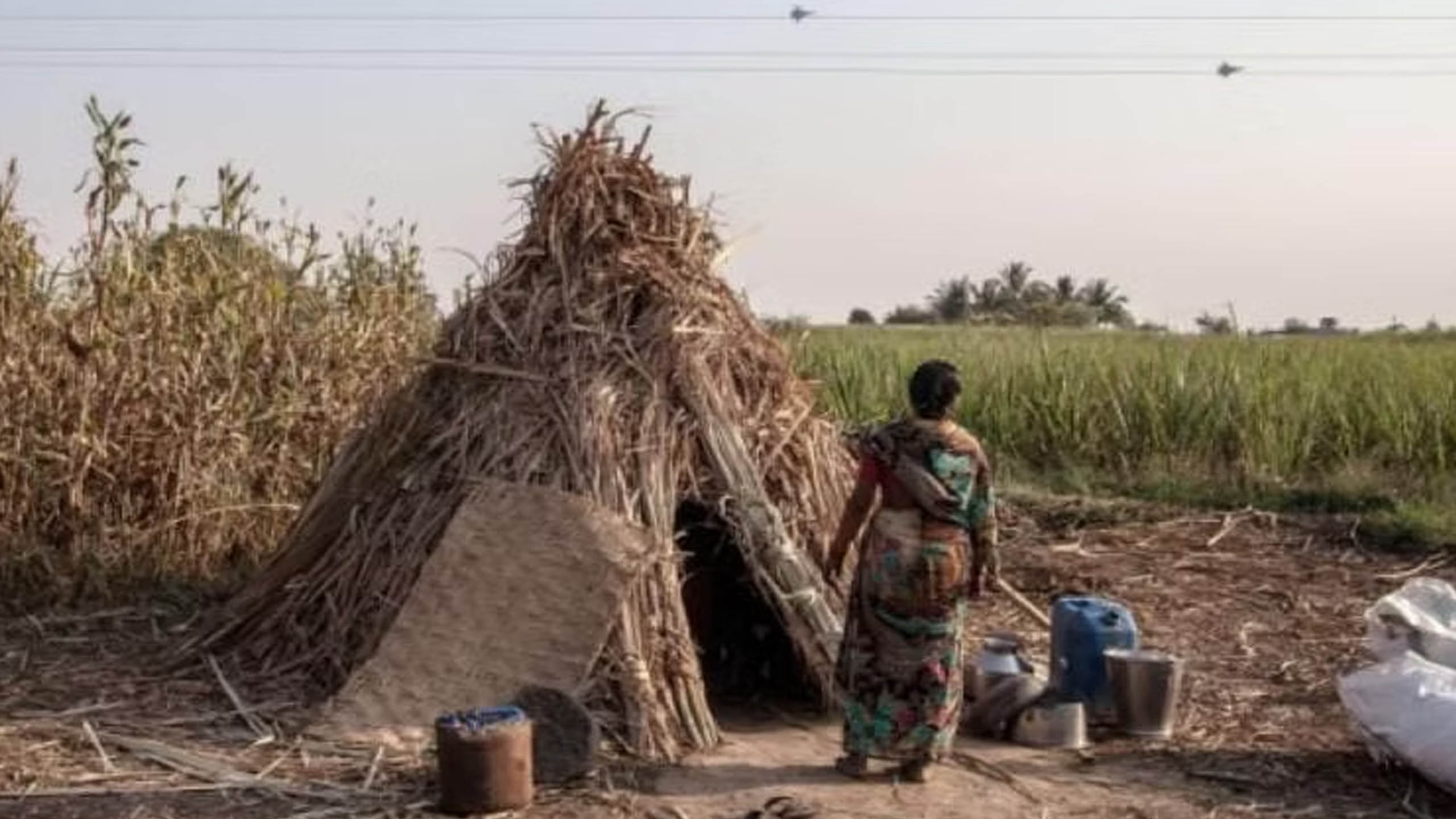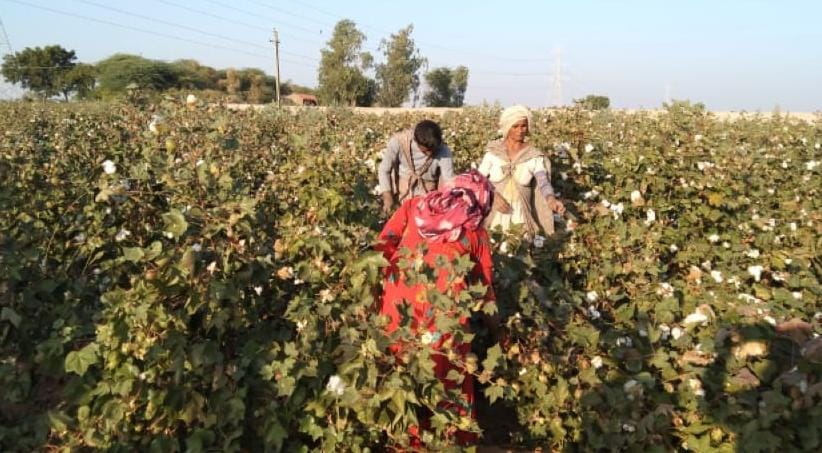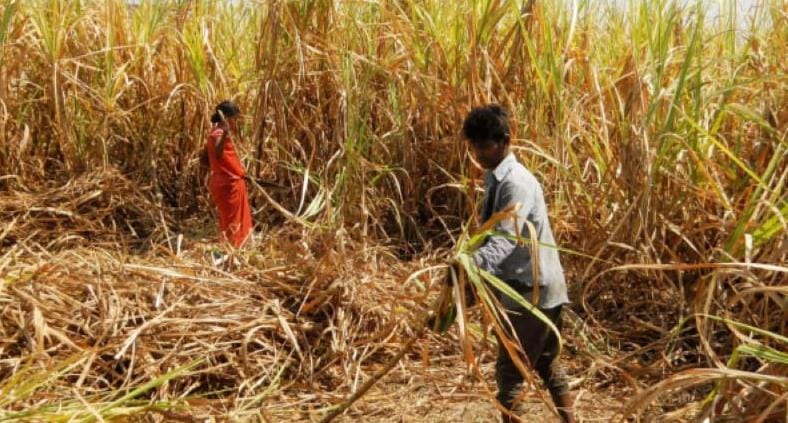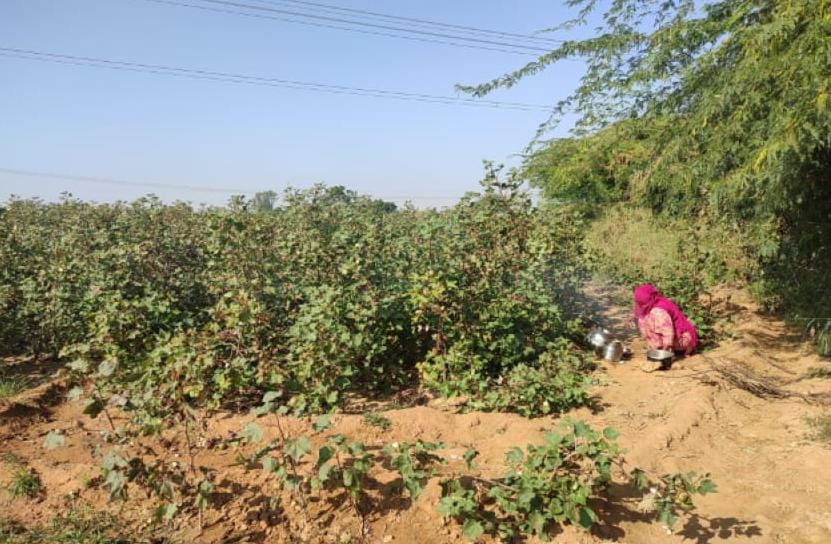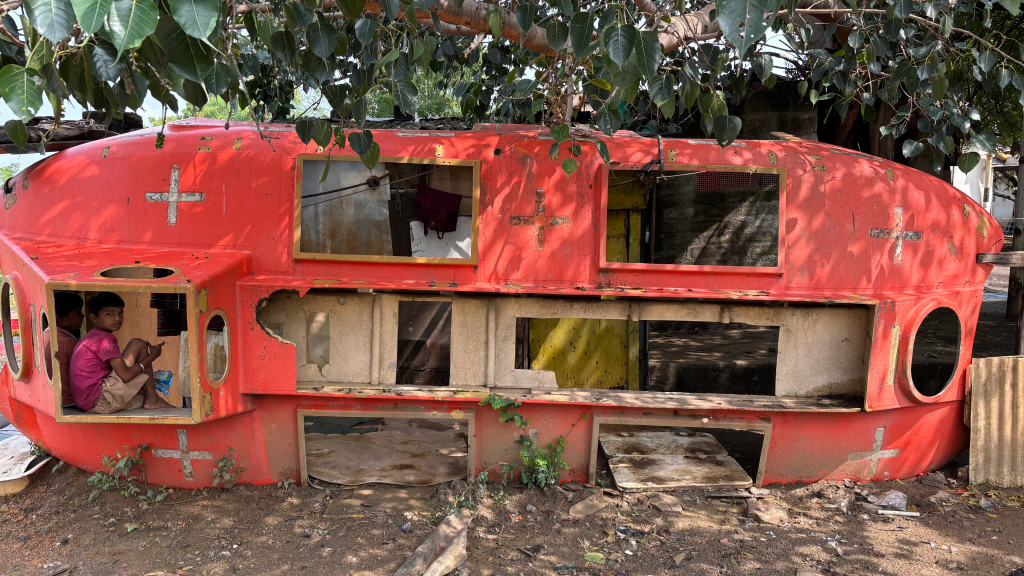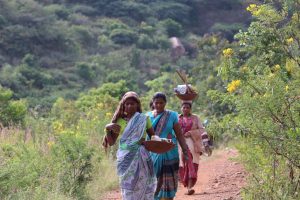JUNAGADH, Gujarat: Like many tribal families in Madhya Pradesh, Sima* and Kishan* migrated to Bhesan in Junagadh a few years ago, hoping to eke out a living as agricultural labourers. The couple was part of the ‘bhagiya’ system, a form of modern-day exploitation where agricultural workers live and toil on the land and are paid not in wages but a meagre share of the harvest instead.
The farm owner would often send Kishan away at odd hours for work and then go to Sima’s hut. He would engage her in conversation, sometimes teasing her or giving her presents, according to the testimony she eventually gave to the Majdur Adhikar Manch (MAM), a state-level trade union working for the rights of migrant, informal workers.
On one such day, Kishan had been dispatched to a nearby city to purchase pesticides for the farm. Sima was alone at home, cooking, when the farm owner came to her hut. He propositioned her, offering her a home and jewellery if she complied with his wishes. When Sima refused, he raped her.
Migrant women workers make up a significant part of Gujarat’s workforce, particularly in agriculture, construction, brick kilns and small factories. The Bhil tribal belt, spanning Gujarat, Madhya Pradesh, Rajasthan and Maharashtra, is the source area for many of these labourers.
Bhagiya labourers live far away from villages, lacking security and a sense of community. Landowners have unchecked access to their living quarters. Often left alone while their husbands work in the fields, women live in constant fear. In many cases, the landowners threaten the husbands or accuse them of theft to maintain their control over the women, campaigners said.
SIMA’S VALIANT FIGHT
Sima was raped repeatedly over several months, accompanied by threats from the farm owner that he would harm Kishan if she opened her mouth. Trapped and terrified, Sima remained silent for a long time.
One day, the farm owner’s wife stumbled upon her husband sexually assaulting Sima. Fuelled by anger and betrayal, she accused Sima of seducing her husband and beat her up. Not stopping at that, she convinced Kishan that Sima was willingly involved with her husband. A heartbroken Kishan immediately returned to his village, leaving Sima behind—alone, without a home, without a job, and without hope.
But Sima’s struggle was far from over. Under the farm owner’s influence, Kishan and Sima’s brother came under intense pressure from a group of “well-wishers”, some of them also members of the organisation, to accept a bribe in exchange for withdrawing the case.
Both, in turn, encouraged her to take the money, seeing it as their only way out of destitution. Despite the law forbidding the withdrawal of rape complaints, a fake document with Sima’s thumbprint was used to claim that no crime had occurred.
Based on this, the Gujarat high court quashed the FIR, and the farm owner walked free.
“We see too many cases like Sima’s, where the system is rigged against the victim,” said Mina Jadav, a labour union activist from MAM. “The police are slow to act, and the legal process is full of loopholes which the rich and powerful exploit.”
In the past three years, MAM has reported 28 cases of sexual violence and filed 16 FIRs, but many complaints end in settlements brokered by powerful landowners. Currently, proceedings continue for 13 cases, while 13 others have been settled under intense pressure, threats or bribes.
“First you people helped me in my case and then people conspired with my family and forced me to withdraw the case,” she told members of MAM. “Now I am tired. I don’t care about money.”
However, three months after the Gujarat high court decision, she filed an appeal in the Supreme Court with the help of MAM.
In a village near the Narmada River in Gujarat’s Chhota Udaipur district, Manisha*, a bright 13-year-old girl, was compelled to give up her education and migrate with her poverty-stricken family to Morbi district in the Saurashtra region, where they found work under the same bhagiya system.
While her parents laboured in the fields, Manisha became the caretaker of the home and her younger brother whose legs were weak on account of malnutrition. One day, when Manisha’s parents left for the local market, a man from a nearby shepherd community entered the hut and attempted to sexually assault her.
The attacker fled when he heard Manisha’s father, who had forgotten something, returning home to pick it up.
Manisha’s anguished parents were urged by the village elders to keep the matter under wraps for the sake of the village’s “sanctity”. The farm owner, a powerful figure, also came from his city home to attend the meeting and pressurised Manisha’s family to not report the matter to the police.
The family gave in, closing the matter with a financial settlement.
Kapila Nayaka, a community leader and MAM member remembers meeting Manisha after the settlement and recalls her saying, “I was bleeding and in a lot of pain. My mother said everything would be fine, and over time, my pain would disappear.”
A SYSTEM RIGGED AGAINST VICTIMS
Sima and Manisha’s are not isolated cases. Across the Bhil tribal belt, many similar stories regularly unfold, often going unreported, campaigners and union members said.
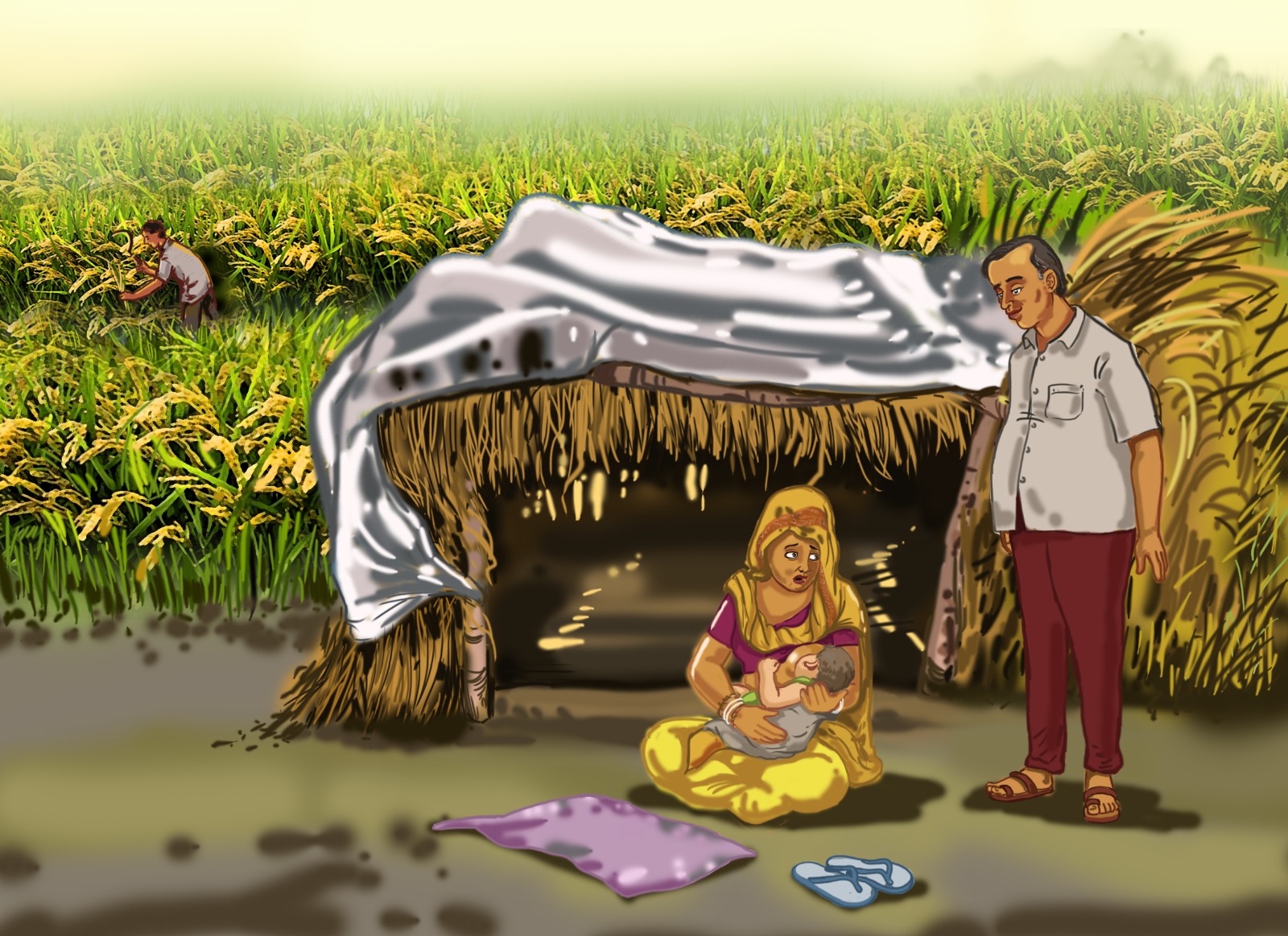
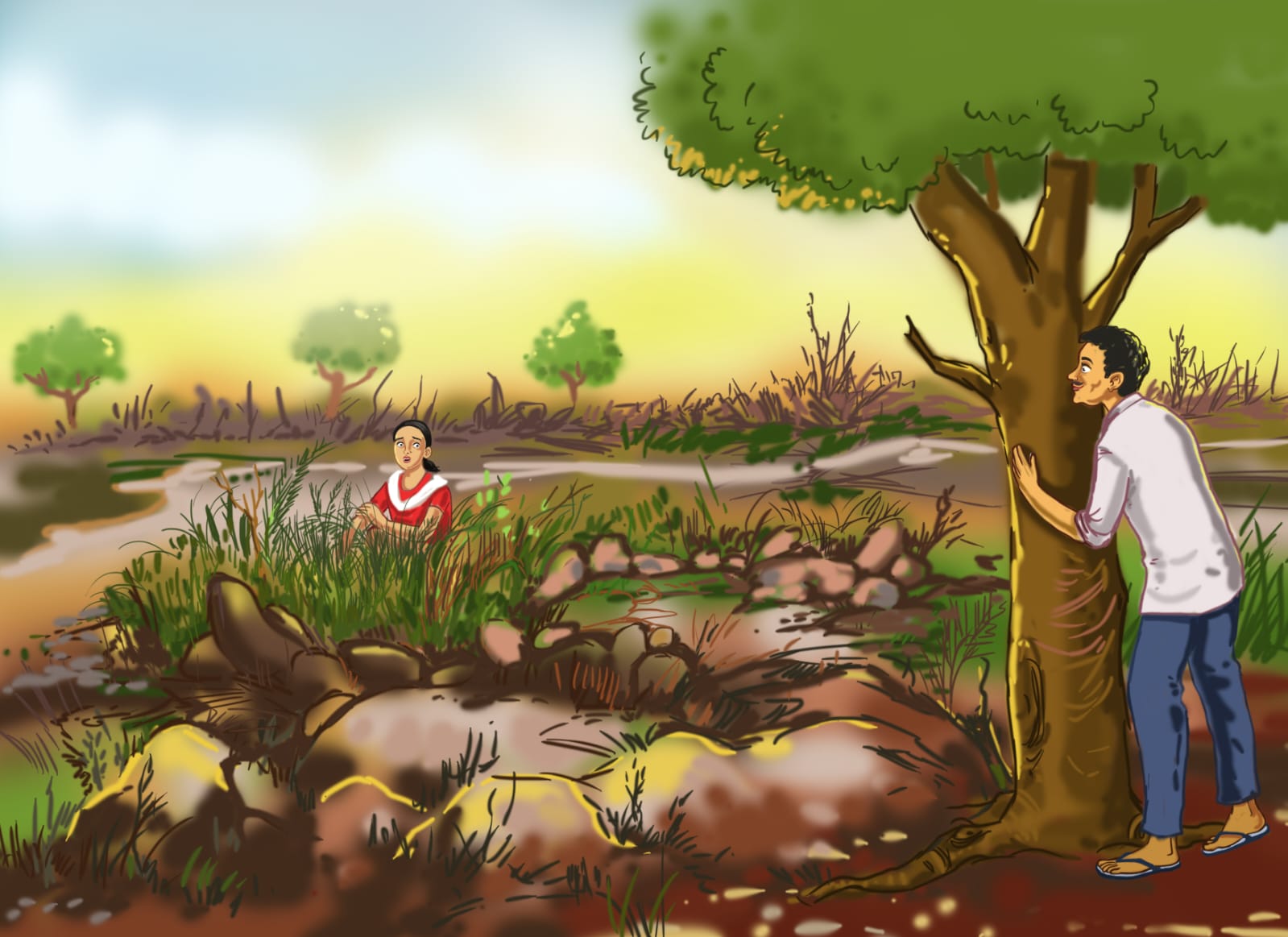
An artist’s interpretation of violence migrant women face in the fields.
Illustrations Courtesy: Majdoor Adhikar Manch
In 2020, the Centre for Labour Research and Action (CLRA), a labour rights NGO, conducted a study that revealed the widespread sexual harassment faced by female tribal workers in Gujarat. The findings showed that women suffer under a triple burden—patriarchal violence, economic deprivation and the additional discrimination against their tribal identity.
These two cases highlight another broader issue.
Many of the crimes reach the police station but the twin factors of casteism and prejudice against tribal communities often lead to no proper investigation being carried out on the complaints.
“Many applications come from tribal workers, often involving internal matters like a minor girl running away with a boy from the same community, which we cannot track,” a police officer said, on the condition of anonymity.
“There are also many complaints of extra-marital affairs. Some complaints against employers seem to have a hidden motive like blackmailing employers to extort money. I’m not saying all complaints are false, but even the genuine ones are often settled outside the police station, putting us in a very difficult position. Our hard work goes in vain.”
SEXUAL HARASSMENT COMMITTEES MISSING
India’s Prevention of Sexual Harassment of Women at Workplace Act (POSH), 2013, mandates the creation of an Internal Complaints Committees (ICCs) at workplaces with more than 10 workers and Local Complaints Committees (LCCs) for smaller establishments and for women in the unorganised sector.
The LCC is responsible for receiving and addressing complaints of sexual harassment at the district level, and just like the ICC, it has to submit an annual report to the district officer every calendar year.
The Paschim Bharat Majdur Adhikar Manch (PBMAM), a network of grassroots organisations and trade unions like MAM have been working across Gujarat, Maharashtra, Madhya Pradesh and Rajasthan on the issue.
Dinesh Parmar, coordinator of PBMAM told The Migration Story that several attempts were made, including filing RTIs, to find out whether LCCs had been formed in the districts, if any cases had been received and how many meetings had been held in a year.
However, PBMAM only received the names of the committee members, and some non-governmental members of the committee even admitted that they had never been summoned by the chairperson.
While ICCs have made progress in the formal sectors, LCCs are almost non-existent in the informal sector, leaving workers like Sima and Manisha vulnerable to exploitation, with no formal mechanism to hold perpetrators accountable.
“Most of these women don’t even know that LCCs exist,” said Parmar. “They have no idea whom to turn to, and even when they try, they are silenced by powerful interests.”
While Sima’s battle is far from over, a glimmer of hope comes from the latest Supreme Court order in her case. The apex court on November 5 overturned the Gujarat high court order which had quashed the FIR and led to the accused’s release from jail. Stressing procedural fairness, the SC emphasised the necessity of the high court ensuring that Sima’s side was heard before quashing the FIR.
The high court is now bound to reopen her case.
Rohit Chauhan is a team leader in Rajkot with the Centre for Labour Research and Action, a grassroots organization committed to advancing the rights of migrant workers in India’s informal sector.

